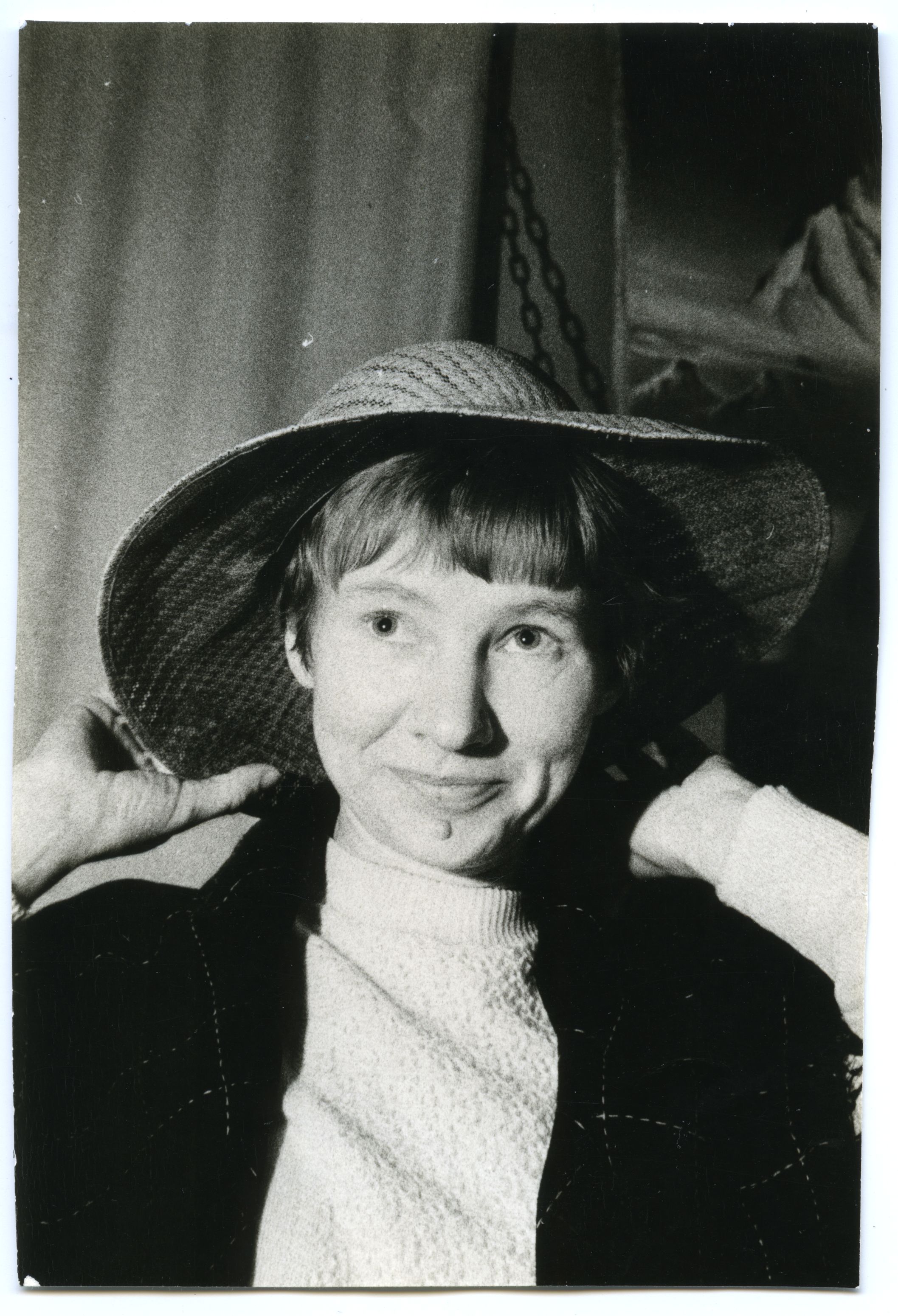
Mari Vallisoo
Mari Vallisoo (12. XI 1950 – 4. VIII 2013) emerged as one of the most distinctive Estonian poets of the last quarter of the twentieth century.
Vallisoo was born in the village of Sassukvere near Kodavere in eastern Estonia, and attended Ranna primary school and Secondary School number 8 in Tartu. Vallisoo’s first poems appeared in a school almanac during her school years in Tartu. From 1970 to 1973 she studied at the Tallinn School of Economics, from where she graduated as an engineer-programmer. Vallisoo worked in the Tartu department of the Institute for the mechanization of computation, and in the department of logic and psychology at the University of Tartu. In 1983 she was accepted as a member of the Writers’ Union and from that time until her death she worked in Tartu as a freelance writer.
Vallisoo’s first four collections formed her basic style and assured the young author’s place among the elite of Estonian poetry. In her creations, Vallisoo united the classical tradition emanating from Symbolism with inherited culture connected with folklore and mythology. In her early poetry there is often a central home-space, where everyday life meets with supernatural forces – on the one hand her poetry reflected the ordinary environment, on the other it was heavily imbued with a mythical sense of the world. Critics have also noted Vallisoo’s ability to bind spoken rhythms and lightness with metrical structures. Of Vallisoo’s earlier works, special attention has been paid to the collection Rändlinnud kõrvaltoas (‘Migratory Birds in the Next Room’, 1983), which has the qualities of ballads and of dialogue.
Some partial changes in Vallisoo’s work occurred with the collection Sünnisõnad ja surmasõnumid (‘Words of Birth and Messages of Death’, 1991), which won the Estonian Writers’ Union poetry award. This book contained more literary reflections than before, and also poems in dialect. The Kodavere dialect – Vallisoo’s childhood language – came to dominate the collection Ussisõnad (‘Snake-words’, 2001) and the book Viimäne vihim (‘The Last Rain’, 2013), which appeared posthumously. Together with linguistic change, the ‘I’ of the text began to represent a local culture. Vallisoo has twice won the Juhan Liiv Poetry Prize, the significance of the prize being enhanced by the fact that Vallisoo and Liiv were from the same area.
New features appeared in Vallisoo’s poetry with Koidutäht koolivihikus (‘Dawn Star in an Exercise Book’, 2011), the last collection to appear in the author’s lifetime, which was more concerned than before with exploring the universe and the scientific viewpoint. Yet this did not signify a fundamental change of attitude, for in addition to new subjects, Vallisoo continued with the mythical sense of life and graceful use of classical language, familiar from her earlier poetry.
M. V. (Translated by C. M.)
Books in Estonian
Poems
Kallid koerad. Tallinn: Eesti Raamat, 1979, 88 lk.
Kõnelen sinuga kevadekuul. Tallinn: Eesti Raamat, 1980, 68 lk.
Rändlinnud kõrvaltoas. Tallinn: Eesti Raamat, 1983, 80 lk.
Kõnelevad ja lendavad. Tallinn: Eesti Raamat, 1986, 72 lk.
Sünnisõnad ja surmasõnumid. Tallinn: Eesti Raamat, 1991, 80 lk.
Ainsuse olevik. Tartu: Ilmamaa, 2000, 62 lk.
Ussisõnad. Kodavere keeles. Tartu: Ilmamaa, 2001, 56 lk. [Ühes luulekassetis koos Hendrik Adamsoni ja Mats Traadi raamatutega.]
Koidutäht koolivihikus. Tartu: Ilmamaa, 2011, 86 lk.
Tabamatu toalävel. Valik 1979–2000. Tartu: Tartu Ülikooli Kirjastus, 2011, 108 lk. [Sari ‘Kaasaja luule’.]
Viimäne vihim. Tartu: Ilmamaa, 2013, 104 lk.
Mälestusi maailmast 1966–2013. Koostanud Tuuli Vallisoo ja Ann Kilk. Tartu: Ilmamaa, 2015, 624 lk. [Kogutud luuletused.]



